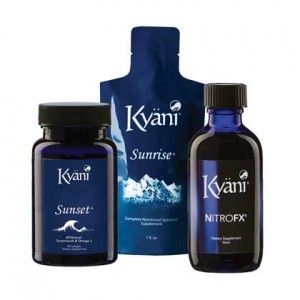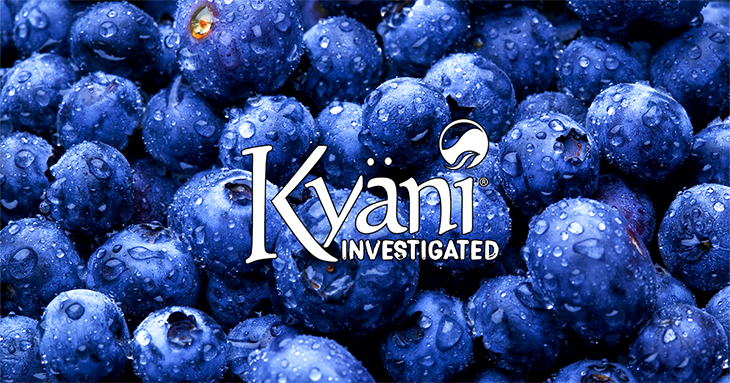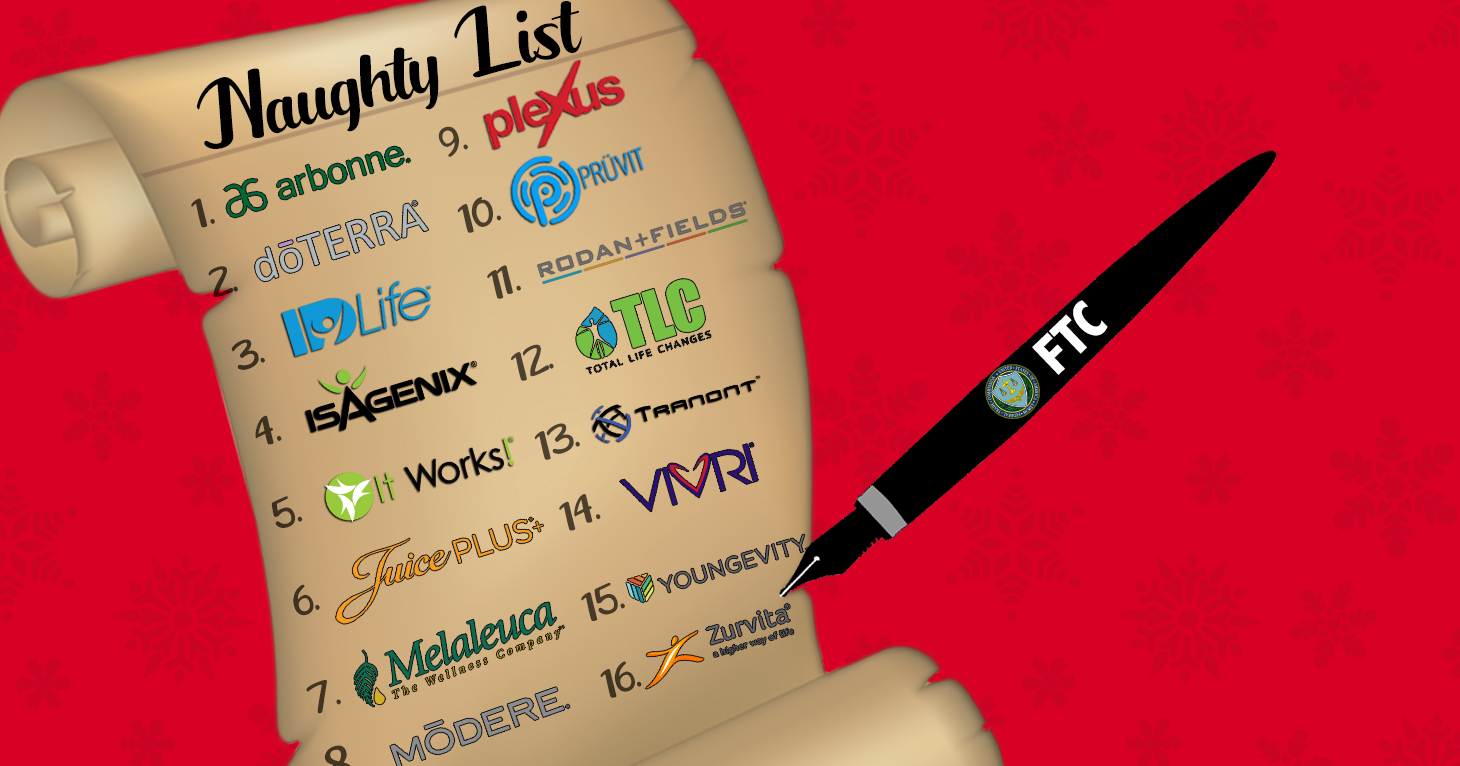
What You Should Know about USANA
Supplement MLM takes down dozens of deceptive claims following TINA.org investigation.
TINA.org investigation delves into claims by Idaho-based MLM.
|
UPDATE 2/26/23: Kyäni has been acquired by Amare Global, which describes itself as “the mental wellness company.” Our original article follows.
Kyäni, an Idaho-based Multilevel Marketing – a way of distributing products or services in which the distributors earn income from their own retail sales and from retail sales made by their direct and indirect recruits. that markets nutritional supplements, touts that its products are infused with wild Alaskan blueberries and sockeye salmon constituting a “Triangle of Health” that will bring you more health, more wealth, and more life. The name Kyäni itself, says the company, means “strong medicine” in the language of an indigenous Alaskan tribe.
But a TINA.org investigation into Kyäni’s marketing has found a number of issues that makes these claims hard to swallow. TINA.org alerted Kyäni to the deceptive marketing issues its investigation revealed and filed a complaint with the FTC and the Idaho attorney general when the company failed to rectify the issues. (See Kyäni’s full response below.)
Here’s what you should know about this MLM (click to expand each point):
Kyäni claims that its name means “strong medicine” in the indigenous Alaskan Tlingit language. But TINA.org reached out to Sealaska Heritage, a nonprofit organization that promotes Southeast Alaskan Native culture, which refuted this, saying the actual Tlingit phrase for “strong medicine” is either latseen náakw or náakw áwé latseen.
But that’s not all. Dr. Clair Francomano, a member of Kyäni’s Scientific Advisory Board, at a company event (see video above), proclaimed that the “superfoods” in Kyäni’s products “are so powerful that native Eskimos do not even have words in their language for heart disease, cancer, or diabetes.” Wrong again. The indigenous Alaskan tribe has words for all three ailments. Heart disease translates to téix’ tunéekw, cancer to tl’ook, and there are actually two translations for diabetes: nukdzi néekw or nukdzi néekwch.
In response to TINA.org’s findings, Kyäni CEO Michael Breshears said the word Kyäni is “a modified version of a word (the Kyäni founders) believed meant, among other things, ‘strong medicine.’” He said the founders did not consult a Tlingit speaker but believe the translation to be “adequate … in one or more Native Alaskan languages.”

Among the host of unsubstantiated health claims are that the products can treat (deep breath here) cancer, diabetes, fibromyalgia, anxiety, autism, insomnia, lupus (into the acronyms now), MS, PTSD, ADD and ADHD. But the company doesn’t have competent scientific evidence to back up its disease-treatment claims as required by FTC law. (For more on the lack of reliable science behind Kyäni’s health claims, see point 3.)
(See related post here on TINA.org’s earlier alert about these dubious health claims.)
In addition to miracle cure claims, Kyäni and its distributors also tout lucrative compensation, exotic vacations and dream cars, with promises that its business opportunity “can help you live the lifestyle you’ve always dreamed of.” But the reality is quite different. Indeed, the vast majority of distributors never earn any profits at all and most, in fact, lose money. (More on this to come in point 6.)
Breshears said Kyäni’s compliance team is reviewing the inappropriate health and income claims that TINA.org found. He admitted that several “lifestyle” posts that TINA.org cited violate Kyäni policy for not linking to the company’s income disclosure statement.
None of the six white papers cited on Kyäni’s website and written by the members of Kyäni’s Scientific Advisory Board members meets the standard of reliable evidence required to prove the company’s claims.
Moreover, the head of the three-member board, Dr. Abbas Qutab, admitted on Facebook that “Kyäni hasn’t published in peer review journals.” Qutab’s comment was in response to concerns over his original post that categorized prescription drugs as “one of the leading causes of death’s (sic) in the US.” The original post concluded: “Doctors can choose safer and natural approaches. I would love to see my colleagues GO WILD, GO EXTREME and GO KYANI.”
Qutab, who claims to have created several Kyäni products, has been hailed at company events as the 2003 recipient of the “‘Physician of the Year’ award by US Congress.” Impressive stuff — that is, until you research the award. Turns out, it wasn’t bestowed by Congress but by the National Republican Congressional Committee (NRCC) in an effort to raise money for the party. A 2004 ABC News investigation found that hundreds of honorees (there isn’t just one Physician of the Year of course) are asked to pay the NRCC handsomely for the award.
The Kyäni Science webpage, on which the six white papers and Scientific Advisory Board member biographies were posted, is now under construction.
UPDATE: It appears Qutab is out as the head of Kyäni’s Scientific Advisory Board. His bio no longer appears alongside other members on the board’s webpage on Kyäni’s website, which has rid itself of Qutab’s name. On his own website Qutab is pitching a free e-book titled “Nitric Oxide: The Molecule of Life,” claiming in a video posted on the site that “once nitric oxide is generated in the body it can maintain, defend, and repair every cell in your body.” The site is also selling supplements marketed for a variety of conditions under the “Dr Q Vitamins” brand name.
The Swedish Gaming Board filed a police report last October about the company’s recruitment tactics. In a statement on its website, the board said that its assessment had found that profits for distributors are related to recruitment efforts and not primarily the sale of products or goods (see the translated statement here). An emphasis on recruitment over product sales could move a legitimate MLM into illegal pyramid scheme territory.
TINA.org’s own investigation uncovered numerous instances in which distributors push the importance of recruiting. The following video presents five examples, including a speech by elite Kyäni distributor Angel Olvera who tells a crowd that “the best companies in the world, they recruit.”
A pay-to-play policy in which distributors must purchase a starter pack to begin their distributorship can also be a sign of a pyramid scheme. Kyäni has such a requirement as spelled out in its policies and procedures, one of at least four different contracts to which distributors are legally bound (see point 8).
If we were to liken Kyäni’s U.S. income disclosure statement to an Alaskan phenomenon, in keeping with the company’s theme, it’d be the iceberg. Because like an iceberg, it’s what you don’t see that matters most.
What does the single-page statement keep hidden? Plenty. For starters, it only outlines the earnings of a quarter of active distributors — defined as active because they made at least one purchase from Sept. 2014 to Aug. 2015 — and (surprise!) it’s the top-earning quarter. What did the “bottom” 75 percent, i.e., the vast majority of Kyäni distributors, make during the same period? TINA.org crunched the numbers and found that nearly 70 percent of distributors (active and inactive) on average grossed nothing or close to nothing ($10). Factoring in expenses such as product costs, a majority of distributors lost money. Behold, the bleak breakdown:
These findings contrast with how Kyäni pitches its “business opportunity” to prospective recruits — to say the least. In one introductory video posted on the video-sharing website Dailymotion, an Australian-sounding voiceover implies that Kyäni distributors can reasonably expect to eventually be making six figures on the job:
The average Kyäni Diamond makes $13,118 per month, which amounts to more than $150,000 per year. That would put you in the top 5 percent of U.S. household income, earning more than the average lawyer, dentist or IT manager. … This kind of financial freedom is not only attainable, it’s well within reach.
Well within reach? Really? Not according to the company’s own income disclosure statement that says less than 1 percent of Kyäni distributors on average grossed more than $100,000 annually (a percentage that, in truth, is closer to 0 than 1). As previously noted, the reality is that most Kyäni distributors end up losing money. Generally speaking, “average lawyers, dentists or IT managers” need not worry about making more with Kyäni.
Another often-touted but rarely attained aspect of the company’s marketing pitch is its “Dream Car Program.” To hear Kyäni tell it, you’d think that most distributors qualify for the car rewards program, which Kyäni claims is “the most aggressive” in the industry:
Kyäni’s “Drive Your Dream Car” program will quickly have you driving in style! … At the early rank of Sapphire, this four-tiered incentive will start paying $500 per month toward your very own Audi A4.
However, while the company describes Sapphire as an “early rank,” according to the income disclosure statement, it takes some distributors more than six years to hit Sapphire. More importantly, as of August 2015, less than 3 percent of distributors were at the Sapphire rank or higher and thus eligible for the incentive.
To become a Kyäni distributor, one must agree to be bound by at least four different legal contracts: Kyäni Independent Distributor Agreement Terms & Conditions, Kyäni Compensation Plan, Policies & Procedures, and Electronic Consent. These four contracts total 50 pages and bind distributors to a six-month non-compete clause (making it difficult to move to another MLM), an arbitration agreement (meaning waiving any right to sue in court or join a class action), a non-disparagement clause (prohibiting distributors from making negative comments about Kyäni), and a six-month non-solicitation provision (preventing distributors from taking their downline to another company).
Last November, confusion over Kyäni’s return policy compelled the company to issue a statement to distributors regarding the intricacies of the policy. The action was in response to a distributor’s BBB complaint that Kyäni misled her on the company’s “100% money-back guarantee.” The distributor said “someone who works for the company” told her “multiple times” that she could return products within 30 days for a full refund. But when she decided to cut ties with Kyäni after purchasing more than $600 worth of product and attempted to make use of the guarantee, she said she was told she could only get 90 percent back, as that’s the actual return policy for distributors.
The statement to distributors, which the company shared in its response on the BBB website, read in part:
Customers get 100% of the purchase price refunded (less shipping and handling) when they return all used and unused products within 30 days of the date of purchase. … Distributors can get up to a 90% (a 10% restocking fee is taken from the purchase price) refund on marketable inventory (defined as unopened and undamaged products) purchased in the last 12 months.
Other distributors have filed similar complaints with the BBB about the muddled money-back guarantee, some protesting the company’s 10 percent restocking fee.
A Texas-based company is suing Kyani as well as five distributors, alleging that the distributors took control of Team Fusion, Kyani’s web-based operating platform, to operate an illegal pyramid scheme for their own gain with Kyani’s support. The company, HD Walz II Enterprises, Inc. owned by David Walz, a Kyani distributor, alleges that the five men formed an “Inner Circle” with its own Code of Conduct and demanded Walz move some new recruits from its downline to the Inner Circle’s team and make monetary contributions to Inner Circle members as well. When Walz refused, the company said it was blocked by the men from access to Team Fusion, which Walz asserts it helped implement and finance. The complaint, filed in June, also alleges that the Inner Circle operates with “unfettered power” and its Code of Conduct is at odds with Kyani’s compensation plan used to recruit new distributors. The complaint states:
Although originally designed to benefit Kyani Distributors, the Inner Circle, with the backing of Kyani, have used Team Fusion and the ability to restrict access to its content to alter the operating procedures of Distributors, including bonus structures, for the financial gain of those in the Inner Circle. Defendants have created a pyramid scheme and attempted to extort payments from Plaintiff and its downline under the guise of ‘gifts” and ‘contributions’ for the sole benefit of those in the Inner Circle.
Kyani, in response to the lawsuit, sent an email to high-level distributors calling the complaint’s claims “unsupported and frivolous,” and saying that it stemmed from David Walz’s belief “that he is entitled to have large portions of Kyani’s business moved from other people’s downlines to his.” Read the full email here.
A near majority of consumer complaints to the FTC about Kyäni claim that the company is operating an illegal pyramid scheme by stressing the importance of recruitment over product sales.
“I was part of a group of approximately 40 people who signed up witin (sic) a few days, and who was pressured to recruit 20 people and we hadn’t even had any products,” wrote one consumer.
“The entire business model works only if you sign up and sign up distributors to push the distribution model,” added another.
Several said they spent hundreds to thousands of dollars on Kyäni products to qualify for bonuses but still failed to make a profit.
“Since I basically bought my position of Jade, I have not been able to advance nor has anyone that joined around the time I have,” wrote one consumer who compared Kyäni to Vemma, which was the subject of a TINA.org special investigation and which the FTC alleges is a pyramid scheme. “I refuse to buy my way up the ladder to make money.”
Consumers also complained about incredible health claims, particularly on Facebook, that Kyäni products cure sciatica, diabetes, autism and cancer, among other conditions as well as the company’s money-back guarantee that requires distributors to pay a 10 percent restocking fee and as much as $73 in return shipping.
Kyäni CEO Michael Breshears’ full response to TINA.org’s investigation can be read here. Click here for further updates.
Supplement MLM takes down dozens of deceptive claims following TINA.org investigation.
Comparing the amount companies agree to pay to settle deceptive marketing charges with their annual revenue.
Deceptive health and income claims, including some tied to COVID-19, persist in wake of warning from the feds.


